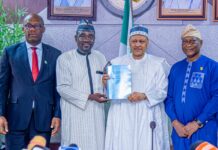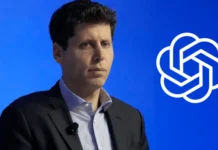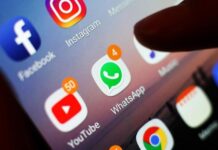FEATURE: Every Nigerian Will Soon Speak Digital—Thanks to NITDA
By Fatimah Yusuf Usman,
The world is changing, and so is Nigeria. Across bustling cities and quiet villages, a silent revolution is unfolding—one driven not by politics or policies, but by the power of knowledge, and by the urgency of digital literacy.
In an era where technology dictates the pace of human progress, the National Information Technology Development Agency (NITDA) is on a mission to ensure no Nigerian is left behind.
On March 27, 2025, a defining moment took place. NITDA, in commemoration of International Women’s Day, organized a Digital Literacy Training under the theme, “Accelerating Efficiency for Workplace Productivity.”
The session was a game-changer, equipping female staff with the skills needed to navigate an increasingly digital workspace. But what truly stole the spotlight was the presentation on the “Digital Literacy for All” (DL4ALL) initiative—an ambitious blueprint designed to transform Nigeria into a digitally proficient nation.
DL4ALL is not just another program; it is a movement, a visionary effort to democratize digital skills, ensuring that every Nigerian—whether a student, trader, artisan, or professional—has access to the tools needed to thrive in the digital economy.
It acknowledges that digital literacy is no longer a privilege but a necessity, a passport to economic empowerment and social inclusion.
With a structured plan to achieve 60% digital literacy for youths by 2025, 70% for both youths and adults by 2027, and 95% national coverage by 2030, the initiative aligns perfectly with Nigeria’s National Broadband Plan (2020–2025).
NITDA’s approach is pragmatic and inclusive. It has forged strategic partnerships with key institutions such as the National Youth Service Corps (NYSC), the Universal Basic Education Commission (UBEC), and the National Universities Commission (NUC).
Through NYSC, young graduates are trained in digital skills, becoming conduits of knowledge to underserved communities.
Picture Maman Ngozi, an akara seller in Akwa Ibom, who, through DL4ALL, has learned to manage her small business with digital tools, increasing efficiency and expanding her market reach.
At the foundational level, UBEC ensures that digital literacy is integrated into the learning curriculum, making it second nature for young learners.
In higher institutions, NUC’s collaboration ensures that digital proficiency is embedded as a compulsory General Studies (GST) course, guaranteeing that every graduate, regardless of their field, is equipped with essential technological skills.
But digital literacy is not just about technical skills—it is about security and resilience in the digital space. As Nigeria deepens its technological footprint, the risks of cybercrime, data breaches, and digital exploitation rise exponentially.
DL4ALL addresses this head-on by educating Nigerians on cyber safety, protecting them from the dark underbelly of the internet while unlocking opportunities in the digital economy.
During the training, an expert speaker painted a compelling picture of the future. By 2030, he noted, 45% of jobs in sub-Saharan Africa will require some level of digital competence.
Automation and artificial intelligence are reshaping the job market, making digital skills indispensable not just in tech-related fields but across every sector—healthcare, finance, agriculture, and even traditional crafts.
Without deliberate action, millions risk being sidelined in this digital revolution. The COVID-19 pandemic underscored this reality. Businesses that embraced digital tools survived, while those that lagged behind struggled.
Remote work, digital task management, and automated processes became the norm, emphasizing the need for adaptability. This is where DL4ALL steps in—not just to provide knowledge but to build confidence, to ensure that Nigerians are not mere consumers of technology but active participants in the digital economy.
For women, DL4ALL is particularly revolutionary. The tech space has long been male-dominated, with women facing barriers to entry and advancement.
By specifically targeting female professionals and entrepreneurs, NITDA is dismantling these barriers, giving women the digital tools to compete, innovate, and lead. Digital literacy, in this sense, is not just about education—it is about empowerment, about rewriting the narrative of gender inclusion in technology.
At its core, DL4ALL is more than a policy—it is a vision of an inclusive future, a Nigeria where no one is left behind in the global digital race.
It is a commitment to ensuring that whether in the corporate world, a rural village, or an informal market, every Nigerian has the digital tools to thrive. The road ahead is not without challenges.
Bridging the digital divide requires infrastructure, investment, and sustained commitment. But with NITDA’s unwavering resolve, the vision is clear: a digitally literate Nigeria, a nation where technology becomes the great equalizer, breaking barriers and creating boundless opportunities for all.
In the grand scheme of history, revolutions are rarely announced with fanfare. Sometimes, they begin in training rooms, in classrooms, in the quiet determination of individuals learning to navigate a digital world.
NITDA’s DL4ALL initiative is that revolution. And soon, every Nigerian will not just be a digital user but a digital literate, shaping the future one skill at a time.
Fatimah Yusuf Usman is a serving Corps member at PRNigeria Centre, Abuja. She can be reached via: [email protected].
















